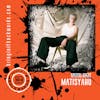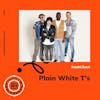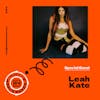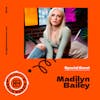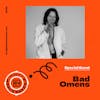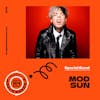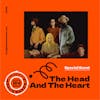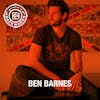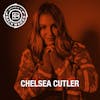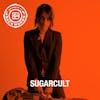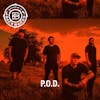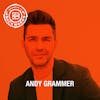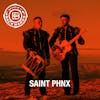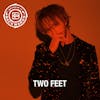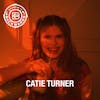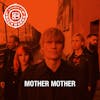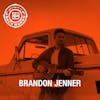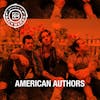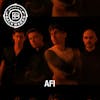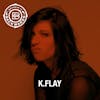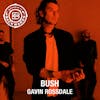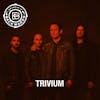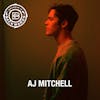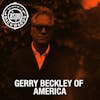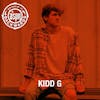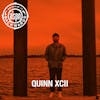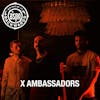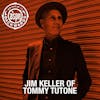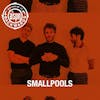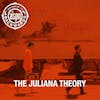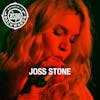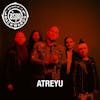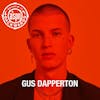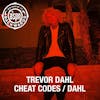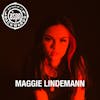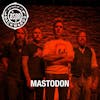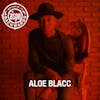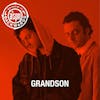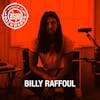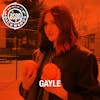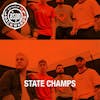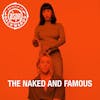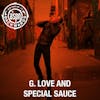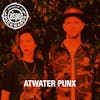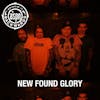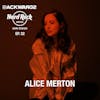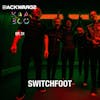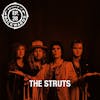Interview with ARMNHMR
We had the pleasure of interviewing ARMNHMR over Zoom!
Catapulting onto the scene with full force, LA duo ARMNHMR (consisting of Joseph Chung and Joseph Abella) are no strangers to attacking all spectrums of Dance Music. With masterful original...
We had the pleasure of interviewing ARMNHMR over Zoom!
Catapulting onto the scene with full force, LA duo ARMNHMR (consisting of Joseph Chung and Joseph Abella) are no strangers to attacking all spectrums of Dance Music. With masterful original productions and beautifully resonating remixes, ARMNHMR has built a loyal following as well as received strong support and recognition from high-profile artists throughout the industry.
A combination of heart-pounding drops and melodic interludes encompass the #HammerSounds, guiding their audience into a world filled with emotion and energy. With dozens of planned solo releases along with collaborations with some of the highest caliber artists in dance music and beyond, ARMNHMR is set for a monster year.
ARMNHMR recently released shared their anticipated ‘Waiting For Love’ EP. Known for their innate ability to craft emotive, vocal-driven hits, “Falling Apart” flexes their musicality, blending dynamic guitar riffs and dramatic percussive elements that enrich RUNN’s poignant lyricism.
ARMNHMR share, “‘Falling Apart’ was a song we had written a couple years ago. It was a song that really encapsulated what we had gone through while first adjusting to this lifestyle. We were at a point where we wanted to step outside of our comfort zone and tap into our musical roots.”
ARMNHMR have swept the live space over the last year, performing multiple sets at EDC Las Vegas, main stage slots at Escape and Audiotistic SF, and sold-out shows at City National Grove of Anaheim and Hollywood Palladium.
We want to hear from you! Please email Tera@BringinitBackwards.com.
www.BringinitBackwards.com
#podcast #interview #bringinbackpod #ARMNHMR #WaitingForLove #NewMusic #zoom
Listen & Subscribe to BiB
https://www.bringinitbackwards.com/follow/
Follow our podcast on Instagram and Twitter!
https://www.facebook.com/groups/bringinbackpod
We'd love to see you join our BiB Facebook Group.
1 (43s): What's going on. It is Adam. Welcome back to bringing it backwards. A podcast where both legendary and rising artists tell their own personal stories of how they achieve stardom. On this episode, we had a chance to hang out with Joe of Arm-in-Hammer. Joe talks about being born and raised just outside long beach and Southern California and how it got into music started playing trumpet around 14 years old joined the school band played in the school band marching band through through high school also picked up guitar on the same time. He actually grew up as a scene kid going into like chain reaction and different hardcore shows around Southern California. It wasn't until he was in college that he got introduced to EDM music. 1 (1m 24s): He went to his first EDM show and he was absolutely hooked. Went home and started to try to write songs via his computer around the same time is where he met Joseph Chung, the other, the other half to Arm-in-Hammer and they started writing music together. Joe talks to us about the first big success they had having the opportunity to remix a song for Chainsmokers. Then opening up for the chain smokers at a massive venue in Nashville and the doors that open forum. He also talks to us about writing this new record and how it was different than previous albums in the sense that he wasn't able to like they weren't able to test the songs in a live setting. It was more done over a live stream. 1 (2m 7s): We also hear about them selling out the house of blues Anaheim. And I was just curious because if you've ever been to the house of blues in Anaheim, every artist that has sold it out gets their own skateboard deck and they're all over the venue and Arm-in-Hammer got a skateboard deck. I thought that was so rad. And we chat all about the new record, waiting for love. Make sure to check out our past episodes. We've got video interviews with a hun of artists are all up on our YouTube channel and Facebook page app, bringing it backwards. It'd be amazing if you like us there. Subscribe, follow us on Instagram, Twitter, and Tik TOK at bringing back pod. And if you're listening to on Spotify or apple music, Google podcasts, it would be amazing if you could follow us there and hook us up with a five star review as well. 5 (2m 56s): We'd appreciate your support. If you follow and subscribe to our podcasts, wherever you listen to podcasts, 1 (3m 2s): We're bringing it backwards with arm and hammer. I'm Adam, by the way, and this podcast is about you and your journey in music and obviously forming Arm-in-Hammer and, and everything you guys have going on as far as the new record coming out. 6 (3m 19s): Yep. Perfect. 1 (3m 21s): Sweet. First off, where were you born and raised? 6 (3m 26s): I was born and raised in a so-called. I was born in long beach, but I grew up in Cerritos and suburban Southern California. I don't think most people know it, but it's right by long beach. 1 (3m 39s): Yeah, I do. Just because I'm from San Diego. 6 (3m 43s): Oh, okay. I would say long to just people whenever I say to, as this very small suburbs. 1 (3m 49s): Yeah, yeah. No for sure. I'm not in Southern California anymore. My family and I moved to Nashville about a little over a year ago now, but yeah, I was 6 (3m 60s): There 1 (4m 1s): Actually today. It's beautiful. It's like 70 degrees and clear and sunny, but literally the last Few months it's just been freezing and rainy and then it snowed and then it was rainy. And obviously, you know, as a California kid, it, this is all new to me. 6 (4m 23s): So at every degree under 60 is just a cuts, a little deeper 1 (4m 28s): In 6 (4m 28s): California. Justin w we've been running our east coast tour shows and I've been out there for, I just flew back maybe two days ago, but I've been out there for like three weeks and it was consistently like seven, eight degrees. 1 (4m 45s): Oh man. I'm so 6 (4m 47s): Happy to be back. It's like 80 degrees right now. 1 (4m 49s): Oh, that's amazing. I know it was freezing here. And when they, they showed the super bowl being in LA I'm like, it was like 80. I'm like, oh my gosh. Is that 6 (5m 2s): Even you pay for the weather 1 (5m 4s): Dude. Yeah, you do. You definitely do well. That's awesome. So you're from Southern California. What was it like growing up to those of those of the people listening that are not from Southern California? What was it like growing up in the long beach area? 6 (5m 20s): I mean, I guess a typical, I mean, I don't know what a typical suburb life in California would be, but never really never really left the county line and just, you know, enjoy the beach. My old stomping grounds is Huntington beach. These two hanging out there. A lot of the kids I used to go to shows all the time. There's some, there's a few really historic, like all ages venues. Like some people might notice like the chain reaction, which closed down recently. 1 (5m 56s): It really, I didn't have 6 (5m 57s): The 1 (5m 59s): Close 6 (5m 59s): Down after I believe so. I don't know if they reopened up, but I remember it closed and it was like a heart. It was a hard day for silk counties 1 (6m 12s): That I didn't hear that. 6 (6m 14s): Yeah. Oh please. I hope I'm not wrong. I believe so. 1 (6m 19s): It might be. I mean, I, I mean, again, I, I haven't, I just like, that's it. I just remember that being such a great venue and so many, I mean, especially in the like hardcore emo world, all those bands that come through January action. 6 (6m 35s): And that's how I grew up. I was a hardcore scene kid. I didn't know about EDM until maybe I was in college. So 1 (6m 41s): Really? Yeah. 6 (6m 42s): That was, yeah, 1 (6m 44s): That was the world I lived in too, man. 6 (6m 48s): Yeah. I feel like we all, most, I mean, most DJs I talked to or at least, you know, a good percentage of them were posts, ex hardcore kids who 1 (6m 59s): Yeah. Well, I wonder where the, what the correlation there is. Do you have any, I mean, being a DJ and coming from that world, like, what is the, is there similarities there that I'm missing or how did that all kind of, 6 (7m 12s): You didn't need it. You didn't need a band. Maybe that's why I always, for me, that's why, I mean, man, I, when I found EDM, I was like, man, I can do all this without like a drummer without a basis, without a keyboard player. Like I can just do it all on a computer and maybe, you know, I'm sure a lot of us had dreams of being in bands and it just didn't work out because you need, you need everyone to kind of be on the same page. So EDM was kind of a nice fit because he could kind of just maybe not share creative control, not in a bad mood. You got like, 1 (7m 45s): No, but you don't have to count on like four other people being willing to really push something. That's, you know, it may not be in their dream. Right. 6 (7m 54s): Exactly. Yeah. So I'm speaking for myself, but I'm assuming that's kind of the case, like a lot of ex musicians and bands has kind of turned to electronic music. 1 (8m 5s): Yeah. I remember I come from radio and I was working on, or an alternative radio station in San Francisco in like 2010. It must've been, and we were out at outside lands and dead mouse was headlining one of the stages. And I remember a guy I was working with, he was, he interviewed Tommy Lee, Tommy Lee was just there. I guess he's really good friends or was really good friends With, with a dead mouse. And he said something about like electronic, like you asked him about electronic music and Tommy Lee said EDM and electronic music is the new punk rock. 1 (8m 46s): And I'm like, and I didn't understand what that meant, but now it's like, you know, we're 10, 11 years later. Like it totally makes sense. Like how much that scene 6 (8m 55s): Rockstars 1 (8m 56s): Blew up. Right. It's crazy. 6 (8m 58s): Yeah. 7 (8m 59s): Facebook has invested $13 billion in teams and technology to enhance safety over the last five years. Over the last few months, they've taken down 1.7 billion fake accounts. Learn more about their ongoing work@aboutthatfb.com slash safety. 1 (9m 15s): It's really, 6 (9m 16s): I mean, I like to think maybe on that note, I guess what's the coolest thing about me to EDM. It's so new that plus who are in it now are kind of pioneering a genre, maybe back then the punk rock days kind of similar. 1 (9m 31s): Right. I think that's what he met. Yeah. There was just like this new sound and this new thing that was, that was happening and it was just kind of, it was evolving and evolving and now it's, I mean, it's massive, right? 6 (9m 43s): It is what it is now. 1 (9m 44s): Yeah. It's crazy. Well, so tell me about what, how did you get into music? I mean, obviously we talked about how you're in the hardcore scene kid, but prior to that, were you like how, what was your introduction into the music in the music? 6 (9m 60s): Well, actually meet both named Joe. We grew up kind of in athletics and sports, but I kind of wasn't coordinated really to Excel in sports, but I love sports. So initially I had joined marching band just so I can follow my school's football team and to, so my introduction that music was that I played trumpet kind of learn music theory there, like freshman year of high school and kind of fell in love with it. 1 (10m 34s): Did you join the school band? Did you do band like 6 (10m 39s): The ensemble and everything Other than that, like, I mean 14 years old 1 (10m 49s): In Hyde 6 (10m 50s): Park soon after. 1 (10m 51s): Okay. 6 (10m 56s): Yeah. And I think the guitar and that was, to me that was much cooler than trumpet, 1 (11m 2s): But you carry dog with a trumpet. It sounds like, like you did that all the way through high school. 6 (11m 8s): I mean, I could play, I don't fucking play it anymore, but yeah. I carried on through all high school and that kind of, but that was like the starting point that led me to different instruments and found out I had a, an accurate 1 (11m 22s): Sure. With, with guitar. Were you ever in a band like being in that, in the, in the seen world of, you know, in that kind of space where you in abandoned all? 6 (11m 33s): Oh yeah. I was going a few and never, I mean, I don't think we're anything exceptional we're doing, you know, battle the bans and the no shows or anything, but it was like the infancy period. I was learning how to write music and like working with other people. So it was a, it was a, it was a dream, but I didn't get anywhere, unfortunately, but unfortunately I guess they ended up to this. 1 (11m 57s): Right. I was gonna say, did it, well, it landed you here. Right? Right. Well, so did you say you got into electronic music and when you made it into college? 6 (12m 9s): Yeah. I'm 32 years old or 33 right now, but so my first introduction to EDM was I was in college 2009, EDC at the Coliseum In LA. That was like my first introduction. I remember walking to the, the main stage and the first person I heard was cascade. I didn't know. I didn't know who cascade was. And I walked in and you saw everyone kind of just watching this one guy on, on the DJ deck. Like, it just kinda hit me like, wow, this everyone's, you know, just one guy he's making this on a computer. And then I think after that I fell in love. 6 (12m 51s): I think the only thing I knew of EDM was daft punk. I mean, I think that was a lot of people's introductions to EDM music in general, but yeah. So there's that, and then dead mouse closed the night in Swedish house mafia. Wow. And Alice, I was sold after that. Here we are. 1 (13m 12s): Yeah. With w when you're going, where are we going to college and where you going forward and music at all or is it totally different? 6 (13m 19s): No, I went to Cal poly Pomona School and engineering school. Oh, I mean, it's a very, definitely not music eccentric. 1 (13m 30s): No, not at all my sister right there. That's cool. 6 (13m 34s): Yeah. It didn't work out, but engineering, I, I definitely am not a numbers person, but at the time it seemed like a very valuable career choice. I'm glad I kind of did it. It would have been really stressful. 1 (13m 50s): Sure, sure. So you're going to Cal poly and, and then you ended up getting, you know, go to the CDM show and when you get home, like where does it go? Okay. I need to get like a program. Like, how did you even start in this world? 6 (14m 6s): I actually, I used to work like way back in the day with a guy who went by the name <inaudible> and he taught me how to make music. So we were kind of just doing something, you know, just, you know, on, in his little room or making tunes and then kinda workout. So that actually was what led me to me, the other joke. Cause afterwards I had, I had music experience and he wanted to learn how to write music. And we had known each other from just having mutual friends who would meet each other at festivals. We were both, you know, into the EDM community. So we were, we were going general mission to everywhere in Southern California. 6 (14m 50s): So from then on, he asked if I want, if I could teach him, I taught him. He didn't work out for a little bit. Eight months went by or a year, went by and then he sent me something and I was like, wow, this is pretty, this has potential. It's pretty sick. We should work on something like together. So I guess that's how Arm-in-Hammer was born. And then, yeah. 1 (15m 18s): Wow. Okay. So it just kind of started with a mutual friendship and then you attempted to write some songs together. It didn't really work out. And then months later he sends you the song and it was like, oh, this is, this is something really cool. It's let's work on this. And then the ball just kept rolling from there. 6 (15m 36s): Yeah. I mean, at the time, maybe it would, I mean, it wasn't that long, but I was doing my own solo projects and then we just, we had a stride with making music. I think the hardest part about, you know, creative control or just sharing creative control is that, you know, you need the person you're working with to be on the same page, inspiration wise. And so we just a click, we both had the same vibe and yeah, we just kept doing it. 1 (16m 9s): When did you start? Like what, what was the moment that it kind of elevated for you? Like, was there a song that you put out in, like stuff started happening or like how did your career kind of build from that initial song that you guys wrote? 6 (16m 24s): Nah, there wasn't just one song. I don't think we ever had. I mean, we've had songs that stood the test of time, but it, it was just constant. Just kind of, you know, we put out probably a good maybe 20 songs before we even landed anything that was remotely successful. So we were just pumped. We got, we got into the tribe just to kind of, you know, working on music, pumping it out and then trying to find our sounds. So I think maybe by like after the third or fourth year we were doing it, we kind of developed the sound of ourselves and then it matured, I guess, over after that. 6 (17m 4s): But yeah, it means your ego we've been doing it before. I guess the, the turning point was, I think would be when the chain smokers had recognized what we were doing and really went out of their way to help us out. But that was until like four years after we started four or five years after. 1 (17m 24s): Oh, okay. So prior to that happening, it was just where you guys playing locally at all or is it mainly just writing songs together and putting them up on what SoundCloud or online or anything? 6 (17m 35s): Yeah. Well, I mean he was being SoundCloud, but we were playing local shows were opening up for, I mean our main venue was at the time it was a club called Sutra nightclub in orange county. And we were lucky enough that there were a few big names that came out of there that really helped us out like a slander. That was a bear, really a big, big turning point for us. So they really helped us out. We were good friends with them. They're like the main orange county kind of DJs that were coming up at the time and they really, yeah. 6 (18m 15s): They just went out of their way and they helped us out too. So we definitely give credit to everyone. Who's boosted our careers over the years. 1 (18m 27s): Like how did slander help you guys? 6 (18m 30s): Oh, I mean, D since, I mean, before we started music, they were already, you know, going full force at it. They just give, it gave us tips. Scott and Derek were just so helpful with just kind of, you know, teaching us lessons. They've learned. 7 (18m 48s): Facebook has invested $13 billion in teams and technology to enhance safety over the last five years. Over the last few months, they've taken down 1.7 billion fake accounts. Learn more about their ongoing work@aboutthatfb.com slash safety, 6 (19m 4s): Like over the years before us and there they're still pioneering the road for us today. So It came full circle. 1 (19m 13s): Huh? That is so cool. And well, tell me about the thing with the chain smokers. 6 (19m 19s): Oh, I mean, I think we had came out with a song, want you, and they had initially, I mean, I think it caught their ear at that time. Roses, I think, was coming out like that whole, you know, that new, that new direction they were going with. Arguably, I would say kind of spearheaded a lot of the modern day feature-based melodic bass sound of today. And I guess they, they dug it. So they gave us the opportunity to remix one of their songs. And I think that's what caught on inside the song was inside out. And arguably I think that's the song that kind of launched our career as Arm-in-Hammer. 1 (20m 2s): Wow. Okay. So once that happened, it was obvious all day obviously had a huge, you know, fan base at this point, right? 6 (20m 12s): Yeah. A hundred oh a hundred percent. Yeah. They definitely wouldn't be where we're at, if it wasn't for that. 1 (20m 17s): And then they helped you and then they allowed you guys to remake the song. And how does that, did they just come to you and say, Hey, could you, we got this record and we wanted to know if you could put your own spin on it. Is that kind of the conversation? Like how does that work with, with remixing songs? Yep. 6 (20m 32s): Yeah. We, I mean, we, we, I mean, where he messaged Alex, Paul Hughes, he gave us the opportunity and then I know we tried and we ran with it and yeah, it was just an, we were luckily enough. We were at least a couple years into our music production experience. So I think w luck is when opportunity meets preparation and we had, we had the skill set and then they sent us the stems and I think it just took off from there. They also offered us like our first big, big show. They played the municipal amphitheater, I think in Nashville that the, that was when the municipal amphitheaters. 1 (21m 19s): Yeah. They played, oh, okay, dude, I'm so new. I don't know the venue here. I feel bad. Not being able to be like, yeah, it's that? 6 (21m 28s): It was so long ago. I'm pretty sure. But yeah, they gave us before then we were just playing side rooms, opening up for acts at a, you know, 300 max person club. And they gave us our first like huge show. It was like 12,000 person seated stadium and then crazy had our one chance to play a set. And then I think after that, it caught on, we gained like a huge following after that. And then it snowballed from there. 1 (21m 58s): So you didn't know, you just got you to the one show with them and it was, what was it like, like, I mean, you, you go into the show and then it's like, you get off stage or the night wraps up. And is that what, like your social media blows up, your streaming blows up? Like how did, how does it like correlate as far as that goes? I'm just curious. 6 (22m 15s): Oh yeah. I mean, from going, you know, playing small clubs, you probably, maybe every show you maybe get like five, five to 10 new followers. And then I think afterwards we played and then yeah, social media just started. We just started gaining followers. People discovered our music. Luckily, like I said, we had like a volt of music already. So it wasn't, I think that was just the, the, the kind of the open door that allowed people to discover who Arm-in-Hammer was. 1 (22m 47s): But 6 (22m 47s): Prior to that, I mean, we were both, that was the biggest show we've ever played. Like prior to that. And yeah, we were pardon my language, shitting bricks. It was a very nerve-wracking time. 1 (23m 1s): I was going to say, dad, take me through that. You get this show and then what you have to fly out to Nashville to, to play. And 6 (23m 10s): My birthday real out of state show. Yeah, we get there. We're just sitting nervously in our green room. Funny story. It was Halloween weekend and the Chainsmokers guys were dressed as kiss. 1 (23m 24s): Oh, that's awesome. 6 (23m 26s): Alex was gene Simmons. He pulls up into our green room and he's like, what's up guys? And he has the full Mason face mask or face paint and everything. This tall guy like, and Nene, Joe couldn't recognize him at first. It's like, oh, it's Alex. And then from there it was like that, that really lightened the mood for us. Just they're in there. Ridiculous. I'm not ridiculous, but Imagine the face paint with the, with the big, the wig. And it just like, we really lightened the mood for us when we were feeding it way too seriously. I think 1 (24m 0s): That's funny. Yeah. You get on stage and what's that like? You're like, oh God. Yeah. Like X and what'd you say 12,000 or 17,000 people like that's many people. 6 (24m 13s): So yeah, I think we, it was a blur. Not that you're drinking or anything, but no, 1 (24m 21s): Obviously just like, whoa. Yeah, of course. Wow. That's insane. That's so cool. I, the only the, the two chain smokers comments I have, or one is I I've met them one time. And it was when I used to work on the radio. Like I said earlier, I worked at a station at this time was in San Diego and I was on the alternative station, but we had a top 40 station in our building. And I didn't know, like it was when they had that selfie song, hashtag selfie came out and like, they, I didn't know who they were. I mean, they didn't have like a huge following at all at any means. And like the guy that did the afternoon DJ, there was like, oh, he's like, oh, I'm going to go grab the, this artist. 1 (25m 1s): I'm going to interview him like, who is it? And he's like, oh, they're called the Chainsmokers. I'm like, oh, that's rad. And then he told me that like, oh, I know the song because they were playing it like very little. I mean, they weren't getting a whole lot of airplay at all at the time. And then like, it was insane because, you know, a year, not even a year later, they were like the biggest artist on the planet. 6 (25m 22s): I know those guys worked so hard. Yeah. 1 (25m 25s): Yeah. It was just crazy. I was like, whoa. And then, You know, Justin Crusoe, he's also DJ. He, I interviewed, I interviewed him a while ago and he told me that the Chainsmokers will, I don't know if this is, I don't know, two or three years ago, but I don't know if this is true or it sounded pretty insane that they actually will open and read all of their emails. If you send them something, they'll act like literally open it and read it or respond. Like I thought that was so cool. 6 (25m 57s): Oh, I mean, I, I believe that I can only speak from ourselves, but they, I mean, they've, I mean, we were no one and they responded to us. So I think that 1 (26m 8s): That's so rad. Do you, I mean, I would imagine that something that you guys probably do as well, right? You're like if somebody were to reach out is offer advice down to the, the up-and-comers. 6 (26m 20s): Yeah. We, we definitely tried to, a lot of the singers and artists we work with are really talented up and comers and I think the same way they did it with us in the slender guys, we try to pay it forward and, you know, build talent. We think like you are amazing. So the same way, hopefully they thought of us the same way, paying it for it as an artist is very important to us. 1 (26m 51s): Yeah. That's amazing. I mean, the people that you have on your records are, so some of them are so talented that I didn't recognize or know who they were until I was listening to your records. I was like, oh, wow. Like, especially in the new one with Ron, I didn't know who she was until I listened to that record. And I'm like, whoa, like this is an incredible vocalist. 6 (27m 11s): Yeah. I mean, there's way too many counted people, you know, and music is, I think the hardest part is just finding a little, you know, a nice spot for you in it. 1 (27m 22s): Right. 6 (27m 23s): But there are just way too many amazing people out there 1 (27m 27s): When it came to this, this new record, will you put a record out in 20, 20, right. 6 (27m 34s): A thousand dreams. We had done that with demand. 1 (27m 37s): Okay. And what was it like? I mean, going, leading into 2020, like in 2019, like what was the, what was the plan and how did that, was it affected by obviously it was I'm sure. Affected by what ended up having in March with the pandemic. 6 (27m 53s): No. Yeah. I mean, it was kind of a rough time. I can't speak for all artists, but I know I see a weird time because a lot of, I guess, DJs, a lot of our inspiration comes from testing out. USIC live. I think that's the appeal of, I guess, with EDM is that when you go out to a show, you get to here under the lease things, you get to hear ID of, you know, your favorite DJs. And a lot of the time we use that as kind of feedback. So we're writing. So during the pandemic, we, you know, we were the last industry to come back, I think live entertainment, live music. 6 (28m 39s): So it was really rough. Just trying to 7 (28m 41s): Facebook has invested $13 billion in teams and technology to enhance safety over the last five years. Over the last few months, they've taken down 1.7 billion fake accounts. Learn more about their ongoing work at about.fb.com/safety. Facebook has invested $13 billion in teams and technology to enhance safety over the last five years. Over the last few months, they've taken down 1.7 billion fake accounts. Learn more about their ongoing work@aboutthatfb.com slash safety. 8 (29m 12s): Millions of Americans are getting back to work. CareerBuilder calls it the great rehire, and we want to help you get the best jobs before everyone else. Career builder gives you the competitive edge to get the job you want at the salary you want with the benefits you want. We even sent job alerts. So your perfect job lens, right in your inbox, go to career builder.com today, or get left with whatever jobs are left. Find your next job fast at CareerBuilder dot. 6 (29m 42s): I wouldn't say just trying to find inspiration because a lot of it comes from how it's, you know, how it's received from our fans and just the people who come out to our shows. So we were just writing. Luckily we had, we had a live stream show called infant skies with insomniac and shelter insomnia. They gave us a platform to do that via live stream, but I can only imagine just every for all artists in general, it was a pretty rough time. 1 (30m 15s): Right. But you were able to at least use that platform to kind of what tests songs that you hadn't quite released yet, or is that what you're able to, you use that as like a focus group type deal 6 (30m 27s): Kinda. Yeah. Yeah. And then eventually that's what are two, I mean, a thousand dreams and now our new album that's coming out this Friday, actually waiting for love. A lot of that process was just, we were playing it on the live stream. You might be able to catch like really early stages of some of the songs, but then here we are now a couple, you know, months. I mean, I wouldn't say that knock on wood a couple of months after every, you know, the COVID and everything 1 (31m 0s): And the records coming out. Yeah, no, for sure mean, Yeah. But to be able to at least have that outlet, to be able to still kind of do what you were doing as far as testing songs out to seeing how your, how your fans and people were reacting to it. I mean, it's obviously not the same setting where you can tell right in front of you, people are going crazy to it, or they're not moving at all because it's all through a computer screen, but that's, I mean, at least you had that, right. I mean, it must've been difficult, but you can kind of gauge a little bit of what the responses from the songs. 1 (31m 40s): So I 6 (31m 41s): Would argue it like, I mean, it wasn't about, oh, sorry. 1 (31m 43s): No, no, no, go ahead. 6 (31m 46s): I mean, I would argue if that's, you know, some, they gave us a platform to, we CA we kind of benefited from the pandemic only because it'll, since there were no shows, it allowed, I think a lot of people who had time to listen to music to really discover new music, because, I mean, I think most people were probably just at home when working out or, you know, cleaning, having music blasting. So it was a really, for underground music. It was, I think it was a really good time for discovery. 1 (32m 18s): Sure, sure. I completely agree with that. And with that though, like, were you able to, like when it comes to collaborating with artists, especially on this new project, was that all done virtually and had you ever worked that way before? 6 (32m 33s): Oh yeah. All of the seniors we work with are sometimes they're not California made it native or local. So we kind of gotten used to me hop on FaceTime calls and kind of just worked remotely. And a lot of our songwriting process is pretty organic. We don't try to rush things. So a lot of the songs that you're hearing now were written like a year ago, but it's, we were just kind of waiting for the right opportunity or it's a big body of work, but yeah, a lot of, a lot of the songs from the album right now were written during the pandemic. 1 (33m 15s): Okay. That's interesting with, with the, with the record in the tour, you guys are doing a tour. I'm curious because you did a sold-out show at the house of blues in Anaheim, correct? 6 (33m 27s): Yeah. 1 (33m 31s): I don't know. Do they do this for every artist that sells it out? Do you get a skateboard deck? 6 (33m 37s): Oh yeah. Actually if I don't think anyone can see it, but it's in the, in the back area or the green rooms and stuff of how to do the Anaheim, anyone who's sold out a show has a custom skateboard deck made for, and you know, there was a spirit and there's so many amazing art ASAP for Lincoln park. There's in the back knee. You see all these skateboards just kind of lined up. So it was a big moment, at least for being from California and to be able to sell out the house of blues and have our skateboard added up there. I wish people could see it because it's amazing. Everyone has their own skateboard, like in the back. 1 (34m 18s): Yeah. Cause they're all over. I mean, they also, when you're going in, I mean maybe you have to have certain access to like that top level. Like when you come into the venue and the, like where the Merce tables are kind of stepped there, like kind of surround, I mean, there's a bunch of them up there, but there's been so many artists, I'm sure that have sold it out. That they, they can't present all of them out there, but I was wondering like that. So it is forever. That's so cool that you guys got a skateboard deck in there. 6 (34m 45s): Yeah, man. I, yeah. Part of history now. 1 (34m 48s): Yeah. That's so rad. That is so rad. 6 (34m 52s): I might, I might even just put some wheels on that. Kind of, 1 (34m 58s): Do they give you guys, did they give you guys a skateboard deck? Did they give the band a skateboard deck as well? 6 (35m 5s): Yeah, my whole team, not one Looking at one of them right now. 1 (35m 12s): Oh, you are? Cause I didn't like they don't have anything. You don't have them up on your Instagram, do you? Or maybe I just didn't see it. 6 (35m 19s): We haven't, we haven't put it up, but every single one of my team members, my manager and my tour manager, the other jail we have, we all have it kind of hang, hung up on our room. 1 (35m 30s): That's so cool. Yeah. I was wondering, cause I knew that they did that and I was like, I wonder if they don't, like, I didn't know. There was some, some thing other than I knew you had to sell it out, but I didn't know if they like made you jump through like one more hoop or something and that's so cool to hear that. Yeah. We sold it out. We sold out the big room. They gave us a skateboard deck. Like that's the coolest, coolest thing. And the coolest like way to, I think repaid bands, I think that's such a rad idea. 6 (35m 55s): And we played the house of blues before, but we didn't sell it out. So we were kind of bummed because this was during our free world tour, the first album we came out with and then we were just short of selling it out and we were kind of bummed. So the second time we came back for the start of this tour, the first thing we asked was where's your skateboard? Cause we had, luckily, I mean, LA is our hometown. We were blessed enough to have it sold out before. So the first, yeah, the first thing we asked, like what your see, please. 1 (36m 28s): That's so cool. Oh, that's so cool that you guys got it. That's amazing. Yeah. And I love your merge. You have the coolest like honestly, like some of the coolest merchant I've ever seen from any artist 6 (36m 41s): And I appreciate it. It's we, we try to, we try our best. 1 (36m 47s): Yeah. It's like it, like, I love the baseball Jersey shirts are so sick and then that, that mustard, yellow t-shirt is so rad too. I mean the logos and everything that you guys have done is just, is so like the graphics, everything it's really, really impressive. 6 (37m 5s): Thank you. Thank you. We like going LA a little loud with our colors, 1 (37m 9s): Which I love. Yeah, it looks great, man. Well, I, and I appreciate you doing this interview. Thank you so much for, for doing this 6 (37m 19s): For having me on. 1 (37m 21s): Yeah, I got one more quick question for you, Joe, before I let you go. If you have, I wonder if you have any advice for aspiring artists. 6 (37m 31s): I guess the only thing I can say is tickets through, I think a lot of the, our colleagues that we've known through the years, we say we've seen so many talented, really, really talented artists kind of fall through the cracks. It just, you know, the music industry is a really, really a hard industry in the sense that, you know, a lot of what the art that's created, it's kind of tied into the person themselves. And it's easy to get yourself down. When you think the reflection of your art is a reflection of you. So I would just say to all of incoming, aspiring music makers or engineers or any, anything you want to do in the creative fields, just, you know, think it through.
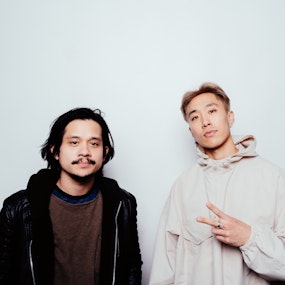
ARMNHMR
Artist
Catapulting onto the scene with full force, LA duo ARMNHMR (consisting of Joseph Chung and Joseph Abella) are no strangers to attacking all spectrums of Dance Music. With masterful original productions and beautifully resonating remixes, ARMNHMR has built a loyal following as well as received strong support and recognition from high-profile artists throughout the industry.
A combination of heart-pounding drops and melodic interludes encompass the #HammerSounds, guiding their audience into a world filled with emotion and energy. With dozens of planned solo releases along with collaborations with some of the highest caliber artists in dance music and beyond, ARMNHMR is set for a monster year.
Featured Episodes
Here are some great episodes to start with. Or, check out episodes by genre.























